.png)
Gary Allen, Managing Director of the RJR Communications Group, has been a media professional - in journalism and media management - for three decades. He started as a St. Mary based correspondent for The Gleaner newspaper in the mid-1980s before joining Radio Jamaica a few years later.
In last October's National Honours and Awards ceremony, at Kings House, Mr. Allen was conferred with the Order of Distinction (Commander Class).
In a wide-ranging interview with Earl Moxam, he recently recounted many aspects of his media career. Part one of the interview, detailed below, started with him responding to a question about the context in which he had received the Order of Distinction.
GA: As I see it, it is really a little bit about me and a lot about the people who have helped me along the journey, which has been an interesting journey with many persons playing different roles in assisting me to learn my media craft and to help me to develop the skills. And I have been fortunate with the opportunities I have had, both here and overseas, to have worked in various aspects of media, which had led to my development and being able to make a contribution. So, I am very grateful for that and also very grateful to some key people along the way: Franklin McKinght who gave me that initial start, Janet Mowatt, who is the person who took me on in RJR, Terry Smith, who I think was my most influential person on my journalistic understanding, and Lester Spaulding who has been involved in my media career for every year expect three of the years when I worked in organizations where he was not in charge. So it’s really a credit to their contribution to me that I have been able to do this and to be recognized on behalf, I think, of working journalists, because not many working journalists have been so recognised at this level.
EM: How much of this journey would you say has been planned and how much of it has been unplanned?"
GA: [laughs] Oh, I think more of it has been unplanned than planned. There have just been a number of things all along that have happened which led to things that were not in my thoughts. I was corresponding for the Gleaner and there was an incident where the RJR correspondent did not show up and I took the opportunity of calling RJR and that's how I started with RJR. There was an opportunity in terms of a development with the Caribbean Media Corporation in in the Sydney Olympics where their wire transfer funds, paying for certain aspects of the 2000 Olympics, did not get to the bankers at the time, and so they say that we couldn't get into the broadcast centre and, even when we checked, our equipment was damaged, and that was how we started to do live broadcast, the first television broadcast for the Caribbean from a Caribbean perspective in terms of the Olympics. Coming back to Jamaica, some discussions we were having about the importance of local government, and happened upon the idea of, well let's try local government debates and so we get into the first local government debate at that the country has had. These have been things that have been significant developments along the way that have been entirely fortuitous; they just came up on me and being at the right place at the right time."
EM: So let's go back to those early days as a correspondent for the Gleaner and then also for RJR, this was in St. Mary.
GA: Yes it was in St. Mary. Actually, how it started was, I used to write for a newsletter at school at St. Mary High School, and my principal at the time, Phillip Hamilton, who is the father of a colleague, media practitioner, also Phillip Hamilton. Phillip Hamilton principal thought ‘Well, let me introduce you to someone I know and used to work with as a teacher Franklin McKnight and he can give you some tips on how to get into journalism and so on,” and a few months later I graduated from high school and Franklin McKnight said, “Well, while you are looking around for stuff to do, I am in charge of rural news; let's try and see if you can do some writing from St. Mary.” That's how it started and I learned how to moved from my first pay cheque of 14 dollars and fifty or 14 dollars and eighty cents, for stories that were published and measured by the column back in 1985 to a point where it was something I could save a little from, and then I remember a former parish councilor, at the time I think he was the only PNP councilor in the St. Mary Parish Council - Noel Walker (Noel ‘Bishy’ Walker) - had kind of launched a one-man protest and was disrupting traffic in Port Maria, and the police came and tried to forcibly put him in a car, and so I saw the story and I called RJR to say “well, look, here is a councilor being taken into custody by the police, and I think there is a story there”, and at the time I remember Janet Mowatt accepting the collect call and she said “Well, if there is a story there, did you write it?” And, fortunately, I had written the story, so I gave her the story and that's how the relationship with RJR started. A few months after that or probably almost a year after that was when an opening for what was then a position called a rewrite editor came up and she asked if I was interested and I said yes and I started. A few months after that there was a fellowship being offered to the University of North Carolina and the Management Training Institute in Washington and she asked if I was interested and I was, and so I went off to those institutions and did some work in journalism. It has been that kind of journey.
My First overseas assignment was covering Hurricane Andrew in The Bahamas, and I remember Hurricane Andrew went on to devastate South Florida, and Hol Plummer, at RJR at the time, said to Janet Mowatt, “There are more Jamaicans in South Florida than in The Bahamas; send Gary on!” I did not even have a US visa, so I applied for a visa in Nassau, got one, went to (Florida), met Hol in the airport, and for the next two days we drove around South Florida doing reports during Hotline and in the news, which is where I got really into my journalism and telling stories about what was happening…
So, that’s kinda how it started, and then I just kept wanting more and more and more and getting more and more interested. I got involved in writing news commentaries. Dr. Omar Davies was a commentator at the time; Peter Abrahams was a commentator at the time… People like Omri Evans and many others; and from the newsroom itself we had analysts like Bobby Fray, Stafford did some, Terry Smith himself did some… Cliff Hughes was one of those persons I worked with in the RJR newsroom on the night shift for about two years; Gillian Haughton; there were so many persons who were involved in different aspects of my career and development.
EM: Let me take you back to that encounter with Hol Plummer, and that particular experience you had. How important, would you say, were those persons whose role and functions were critical to the operation of the newsroom, but not necessarily based in the newsroom?
GA: Oh, that’s absolutely the story that has not been told! There are many of those persons who you really function with at a different level, and make such a big difference to what you do, and most of them never get mentioned. Hol Plummer, for example, is one of those persons who served RJR for over 50 years from different levels. Hol was working from being a technician until he was not just in programmes, but went on to serving as a staff representative on the Board, and later as a Board Director in his own right. But Hol is the kind of person who always had ideas about different things that you could try and was always willing to push you. He was always wanting to take Hotline overseas, he wanted to take this programme to the streets, he wanted to do this kind of discussion somewhere… Richie Andrews who was somebody working in the library at the time, always wanting to suggest that you add a little stinger here and a little flair there, a little promo somewhere else. The broadcast technicians that you worked with, they always had different suggestions as to how you might want to do things a little bit different; some of the things that I don’t think that we do enough of today. The producing of the programme rather than just recording a programme … I think, gave me a different appreciation and feel for the business that we were in. In terms of the actual news discussion and debate, in a news centre, not many people would have heard Janet Mowatt on air, but in terms of the real hardnosed assessment of what makes the story, and what makes the lead, and why do we lead the entire national bulletin with this particular story; what is its significance, are discussions that you had with a Janet Mowatt, with a Terry Smith; a Clifton Segree would participate in those kinds of discussions. And then you had people like Jennifer Grant… Jennifer did some of the most beautiful features on news items. I was talking to her (recently) about when there was this gold rush to St. Thomas. They thought they had found gold in St. Thomas and people were leaving Kingston with shovels, heading out to St. Thomas to try and dig for some of the gold. She would travel around to different communities, meeting different persons who were heroes and heroines in their communities but were unsung heroes, nationally. The human interest side of the business is a side that Jennifer would have opened your eyes a lot to. So those people were very important in the off air guidance that they would give you on different things, and I found that to be very helpful and very broadening of my appreciation of news beyond just what’s happening in Jamaica.
EM: Janet Mowatt was the start of a triumvirate of female news managers here at RJR. Many people, as you say, really do not remember much about her. So, if you could expand just a little bit on the personality and the impact of Janet Mowatt.
GA: I think Janet Mowatt was the first female news editor that RJR had, and she’s still around and I see her from time to time, and my regard does not wane because of the impact she had. She’s a small person in stature, but very significant in her presence in the news process. She was an administrator of the newsroom but also a very clear thinker about news and directed the newsroom, which was dominated by some significant male journalistic figures, not afraid to stand up to anyone, whether in the organization or outside of the organization, including the politicians at the level of prime ministers and ministers of government.
EM: And, by the way, these male egos were quite huge, some of them!
GA: Oh, absolutely! One of the things that I had to get accustomed to was the general cut and thrust of the debate about news values, which sometimes got really, really sharp in the newsroom, and one would not understand when they heard the bulletin that came out on air, a lot of the debate that went into simply the matter of which story should follow which and why, or which international story was of significance to Jamaica, or why the regional stories are important because we are a part of a regional space, whether we like to think so or not… So, those kinds of things were huge, the journalistic learning from the thing…
EM: How hard were you on yourself then and how has that now affected how you operate as a manager?
GA: I think you couldn’t help being hard on yourself. We had competitions in the newsroom about not making errors. You had competition about how you edited without getting uhh and ahh coming out in speeches, and those days it wasn’t computer generated editing, it was splice editing, in that you had to cut the tape and paste it back together at the exact point. Those things made precision an important part of what you were doing and it was not excusable that you didn’t have enough time to get the story into the bulletin… I think that gave you a conditioning, working under pressure, that was something that you grew to appreciate was a part of the business. That causes me today to have a significant amount of frustration when I see the level of technology that people have to work with and still hear the challenges that they have in putting out clean cuts. We couldn’t go to an assignment and record something from a speaker box, and it came back sounding like something that was recorded in a dancehall! The quality control would not allow that, and the pride in what you do would not allow that. So, I get very frustrated and probably am difficult to cope with by the Head of News because I call so often and complain so much about the things of quality control, about accuracy, about the things that we should not get wrong, or that we must correct immediately. Credibility is not that you will never make a mistake; it is that if you make a mistake, you own up to the mistake, apologise for it, and give the accurate information. That’s how you build credibility, so that people know that if you say something, trust it, because if you find out that it’s wrong, you’re going to come back and say that this wasn’t the accurate thing and this is what is accurate. So, in the profession overall, I do have a sense of concern and very often almost a sense of despair about the flash-in-the-pan, superficial, wrong pronunciation, erroneous information, lack of understanding of basic civics and how our governance structure runs, subject-verb errors; all those things fill me with a great sense of concern, and sometimes even being disheartened. I’ve had also the opportunity of doing some tutoring at Carimac (Caribbean Institute of Media and Communication) and looking at some of the recruitment processes, and I’m seeing people who are getting 2nd Class Honours and doing really well coming out of university, but they write poorly and they speak poorly and they present poorly, and there’s just this big disconnect as to how do the two meld in the one place.

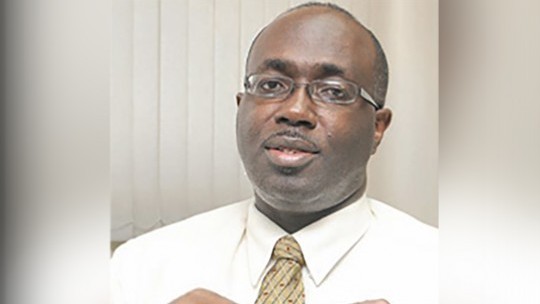
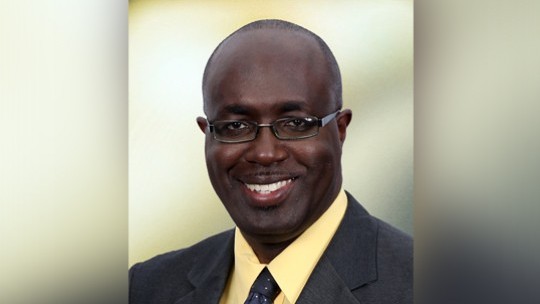
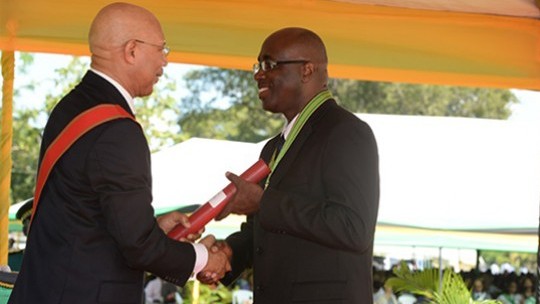



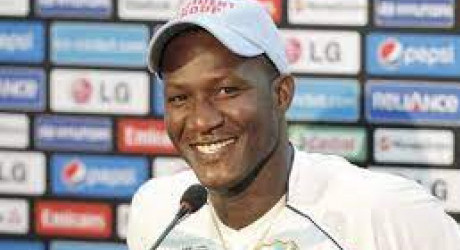
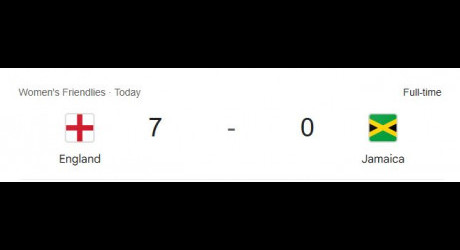

 All feeds
All feeds







